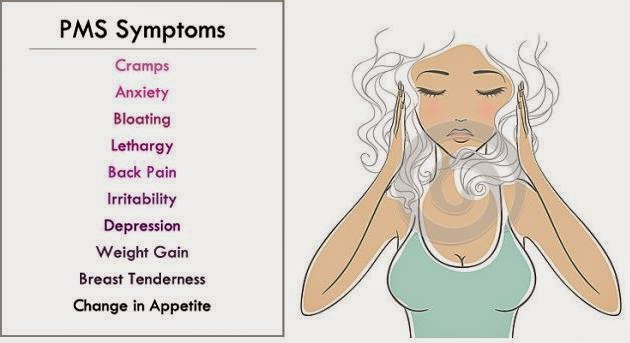HOMOEOPATHY FOR PREMENSTRUAL DYSPHORIC DISORDER (PMDD)
Premenstrual dysphoric disorder (PMDD) is a condition characterized by depression and severe irritability before and during the menstrual periods. PMDD
can cause severe depression, irritability, and tense feelings in
conjunction with menstruation. Both
PMS and PMDD are characterized by unpleasant physical and psychological symptoms
that occur in the second half of a woman's menstrual cycle, most commonly in
the days preceding the menstrual period. PMDD generally affects less than 10% of
sexually mature women. PMDD occurs in 3% to 8% of menstruating women.
PMDD
can range in severity from mild anxiety to strong feelings of
hopelessness and thoughts of suicide. Some cases of PMDD respond to a
healthy diet, regular exercise, and adequate sleep. More serious cases
of PMDD may require antidepressant medications.
A brain chemical, serotonin plays a role in Premenstrual Dysphoric Disorder (PMDD), a severe form of PMS.
 |
| PREMENSTRUAL DYSPHORIC DISORDER (PMDD) |
How is PMDD Diagnosed ?
PMDD
distinguished by physical and psychological conditions.
Symptoms
- Feelings of sadness or despair, or even thoughts of suicide
- Feelings of tension or anxiety
- Panic attacks
- Mood swings or frequent crying
- Lasting irritability or anger that affects other people
- Lack of interest in daily activities and relationships
- Trouble thinking or focusing
- Tiredness or low energy
- Food cravings or binge eating
- Trouble sleeping
- Feeling out of control
- Bloating of abdomen
- Breast tenderness, headaches, and joint or muscle pain
- Indifference towards her own family
- Fatigue
- Feeling helpless
- Lacking in energy
 |
| Symptoms of PMDD |
Homoeopathy treatment
- Pulsatilla
- Sepia
- Passiflora
- Kali.phos
- Mag.Phos
- Ars.alb
- Veratrum Album
- Nux vomica
- Natrum Mur
 |
| Homoeopathy For PMDD |
Case Study :
Name of the patient : Mrs. XXX, Age is 33
Status : Married
Family : Husband and 2 years old Girl child
Diagnosis : PMDD
Evaluation of symptoms:
- Mood changes
- Frustration
- Swelling
- Depression
- Sadness
- Intense fatigue
- I would burn food
- Disorientation
- Dizziness
- Impatience
- Outbursts
- Low energy
- Low sex drive
- Irritable
Normal Study
Basing on totality of symptoms and repertorization Sepia
given and intercurrently Ars.alb given. Now the patient is doing well and no PMDD symptoms present.
Note:












